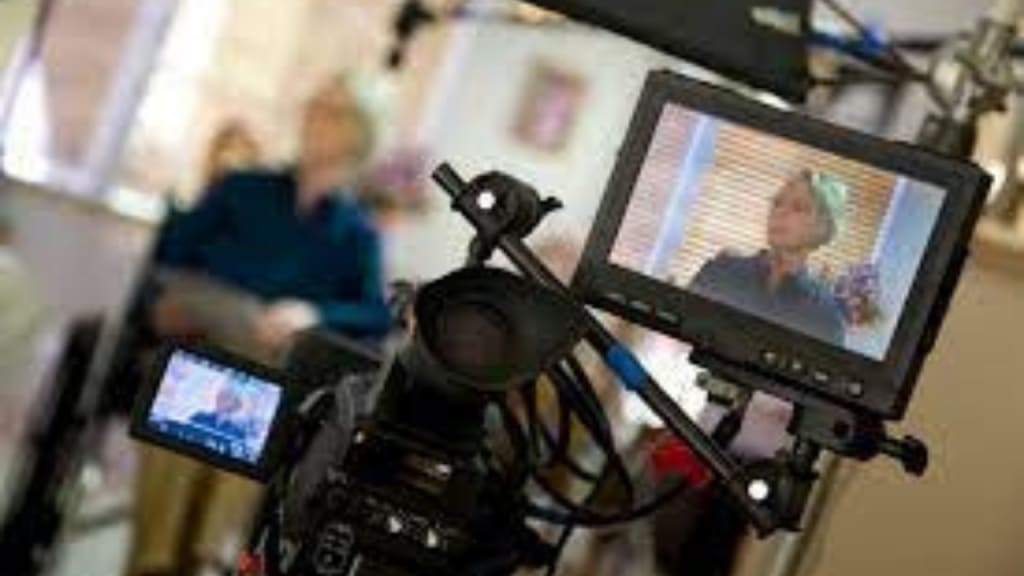What It Takes To Become A Legal Videographer
What you need to know before becoming a legal videographer

When you’re looking to get into videography, whether as a primary career or as a side job, you should know what you’re getting into. It’s not always an easy path to get your start, but with the right training and the right attitude, it can be very rewarding and lucrative. So what does it take to become a legal videographer? Here are six things you’ll need to know about the career field before deciding if it’s right for you.
What Do Legal Videographers Do?
Legal videographers, also called court reporters, make recordings of hearings and trials for legal proceedings. The recordings are later transcribed into written documents that are used to review trial proceedings.
Because most states require professional licensure, it’s important to get training from an accredited school before you apply for work. With a background in law and legal practice, you might be able to start your own business recording legal events. But first, understand what training is required—and what expenses go along with it—to become a legal videographer. As a new graduate on top of student loans, you might consider working as an apprentice or assistant until you have a better idea of what running your own business looks like.
When you graduate from a state-accredited school, you’ll have to sit for licensing exams in your state and complete mandatory internships. Be prepared to pay fees, complete paperwork, and file paperwork with your state government. In addition to getting certified by your state, it’s also possible to pursue certification through national organizations like the American Association of Electronic Reporters and Transcribers (AAERT) or the American Society of Reporters and Editors (ASNE). While these aren’t required in all states, they can be helpful when trying to get a job.
You Are Ready For A New Career If…
Before you quit your day job, it’s a good idea to make sure you are truly ready for a new career. You need to consider whether or not you are ready financially, physically, and mentally before taking any career plunge. If you can answer yes to all three of these questions, then it’s time to start planning your move into a new profession. Consider things like how long you have been in your current position (if more than two years) and whether or not there is any personal growth available where you work right now. If there isn’t, don’t waste time waiting around for that promotion—plan ahead! Are your skills honed in your current job?
Learn The Fast Track From Experienced Videographer To Shoot, Direct & Produce Any Type Of Video
Before you quit your day job, it’s a good idea to make sure you are truly ready for a new career. You need to consider whether or not you are ready financially, physically, and mentally before taking any career plunge. If you can answer yes to all three of these questions, then it’s time to start planning your move into a new profession. Consider things like how long you have been in your current position (if more than two years) and whether or not there is any personal growth available where you work right now. If there isn’t, don’t waste time waiting around for that promotion—plan ahead! Are your skills honed in your current job?
If you have been in your career for longer than two years, it’s time to really take a hard look at whether or not you are ready for a new job. If there is no growth and personal satisfaction available, then it might be time to make some tough decisions about leaving your current position. Take some time to consider what else is out there for you; reach out to family and friends for recommendations on places that may need talent like yours.
Get in touch with local colleges, training programs, and other potential employers to learn more about how they can help you get ahead. Decide how long you will give yourself before deciding on a new job—setting that deadline will keep you focused while also allowing yourself flexibility if things don’t go as planned.
Some Helpful Tips On Becoming A Legal Videographer
In addition to a law degree, prospective legal videographers need at least two years of experience in criminal or family law. No bachelor's degree is required for a legal videographer job, but you'll need to get certified by an established organization such as NAALAP (the National Association of Legal Assistants and Producers). Experience, references, and any relevant educational qualifications should factor into your salary negotiations. Most industry sources agree that people with a few years' experience should earn anywhere from $40,000 - $60,000 per year depending on their area of expertise.
Some legal videographers are able to charge more than $100 per hour for their services. There are also opportunities for freelance work, and you can even set up your own business if you're willing to put in a lot of time and effort. Keep in mind that there's stiff competition for these jobs, so it's important to stand out from other candidates. Some of your most valuable assets will be your experience, skills, and personality. You'll need to be personable, detail-oriented, and organized. In addition, you should have excellent communication skills and an eye for detail.
You should also know about law practices and procedures, both in general and specific to your area of expertise. Most people who work as legal videographers have at least a bachelor's degree; for those with a law degree, relevant experience is essential. If you're interested in starting a career as a legal videographer, you can attend workshops and seminars offered by professional organizations such as NAALAP or attend school part-time at an institution such as Boston University.
Next Steps To Becoming A Legal Videographer
In order to become a legal videographer, you need to have at least 2 years of experience in video production. You can take classes and gain experience through internships to get your foot in the door. After that, it's all about making connections in your local community. You can network with other videographers and even work for free for an established business. Businesses will appreciate your hard work and you might find yourself being called back for more!
Before you can become a legal videographer, you need to know what makes someone good at it. First, you'll need to understand legal terminology. The two main types of terms that videographers encounter when working for lawyers are depositions and interrogatories. Depositions are question-and-answer sessions during which a witness or expert is questioned under oath about a matter in dispute in order to preserve their testimony for trial.
Interrogatories are written questions submitted by one party of the lawsuit to another party with an opportunity to respond in writing before they’re answered at trial.
How Much Does A Legal Videographer Make?
In order to become a legal videographer, you must go through formal training in a law firm or post-secondary institution. Because there are only four schools with programs accredited by ABET, two of which are located in California, it can be difficult to find one that is both close and affordable. When attending school full-time as an undergraduate student (or equivalent), you can expect to pay at least $20,000 per year in tuition fees. And that’s just for tuition - don’t forget books and living expenses too! If you want to get into any sort of job-related to filmmaking, you need an education from a well-respected institution.
You may be able to find a legal videographer job without an education, but you will most likely have difficulty getting hired anywhere reputable. Employers want to see that you’ve put in some time and effort - just doing internships or volunteering is not enough on its own. If you’re lucky enough to land a legal videographer job out of college, expect to make about $60,000 per year during your first few years of employment.
Once you gain experience and prove yourself as a valuable asset, you could potentially make as much as $100,000 per year! Many videos are shot at locations all over the world, so travel opportunities are plentiful. You'll need an entertainment lawyer if your company decides to shoot in another country's jurisdiction.
On top of having your education and experience taken into consideration, you will also need to pass an exam in order to get a legal videographer job. Aspiring videographers must pass a certification exam known as CP-V before becoming fully accredited legal videographers.
Certification is offered by both Vibration Global Media and Terralingua Training Institute, both of which have multiple offices across several countries. For example, in order to become certified with Vibration Global Media, you would need to complete their one-year program (which includes on-the-job training). The cost for certification from Terralingua is just under $1,000. Either way, you’ll have an equal opportunity at finding employment at a law firm if you successfully earn your certification!
Becoming A Legal Videographer: Final Word
Although we all have the ability to acquire some skills by ourselves just by reading books or watching videos and putting into practice what we learn when it comes to becoming it is clear that you actually need to get an official education from an accredited school, get the necessary field experience, and the appropriate certification as all of these are going to be necessary for you to be the competition.
Learn The Fast Track From Experienced Videographer To Shoot, Direct & Produce Any Type Of Video
#videographer #weddingvideographer #videographers #destinationweddingvideographer #atlantavideographer #miamivideographer #atlvideographer #houstonvideographer #nycvideographer #lavideographer #femalevideographer #dallasvideographer #videographerlife #weddingvideographers #elopementvideographer #chicagovideographer #utahvideographer #dmvvideographer #dubaivideographer #freelancevideographer #londonvideographer #eventvideographer #travelvideographer #destinationvideographer #balivideographer #newyorkvideographer #orlandovideographer #losangelesvideographer #torontovideographer #videographermalaysia #dcvideographer #iamthevideographer #utahweddingvideographer #njvideographer #malayweddingvideographer #nashvillevideographer #torontoweddingvideographer #videographerjakarta #miamiweddingvideographer #baltimorevideographer
Disclaimer: This post contains affiliate links. I will earn a small commission if you click on these links and ultimately make a purchase but at no additional cost to you.






Comments
There are no comments for this story
Be the first to respond and start the conversation.